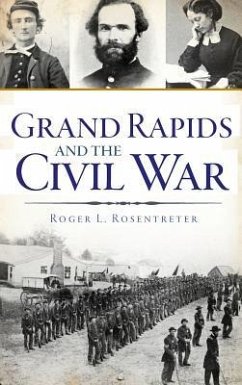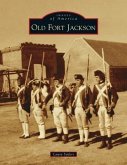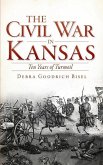Grand Rapids responded to President Abraham Lincoln's call for troops with passionate swiftness. Kent County men fought stubbornly on memorable battlefields like First Bull Run, Stones River and Gettysburg, as well as obscure places like Boonville, La Vergne and Mossy Creek. An affinity for cavalry earned Grand Rapids the moniker "Michigan's Horse Soldier City," while Valley City engineers designed and constructed spectacular railroad bridges throughout the South. Back home, the soldiers' mothers, wives and sisters faced the conflict's many challenges with patriotic doggedness. Dr. Roger L. Rosentreter chronicles how Grand Rapids citizens responded to wartime trials and tribulations while helping the North save the Union and end slavery.
Bitte wählen Sie Ihr Anliegen aus.
Rechnungen
Retourenschein anfordern
Bestellstatus
Storno








